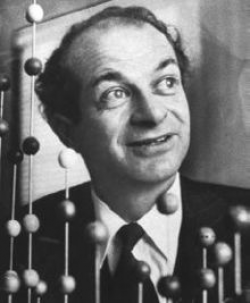Linus Carl Pauling

- Born
- 28 February 1901
- Died
- 19 August 1994 (age 93)
It’s not every day that someone can say they founded both quantum mechanics and molecular biology, but this was a reality for Linus Pauling. Not only that, he is also the only person to win two unshared Nobel Prizes (the Nobel Peace Prize and the Nobel Prize in Chemistry). Alongside Marie Curie, he is one of only two people to win it in two different fields.
Pauling came from very humble beginnings in Portland, Oregon. Cramped surroundings forced his family to move to Salem and then Oswego for work. It was in Oswego that his father opened his own pharmacy, but poor health and a bad economic climate meant that this didn’t last very long. It was shortly after the move that a perforated ulcer killed his father, leaving the family to cope on their own.
Pauling had a natural interest in science that was inherited from his father, and this was allowed to flourish when he started school. He was entranced by chemistry experiments and after raiding an old steel plant he founded the company Palmon Laboratories with a school friend, which they ran from his basement. Despite his enthusiasm and resourcefulness, it ended in failure.
However, things quickly took a positive turn when he was enrolled into university at only 15 years old. Due to technicalities with his high school credits, Pauling didn’t receive his high school diploma until 45 years after he left – this was after he had been given both his Nobel Prizes!
Pauling’s career really began to take off in Europe, where he was one of the first people to study quantum chemistry and apply quantum theory to the structure of molecules. He later became a professor at Caltech and published around 50 papers in 5 years. In 1932 he coined the idea of electronegativity, which led to the establishment of the Pauling Electronegativity Scale – an underlying and vastly important principle in chemistry.
In 1954, Pauling was accredited internationally for his work with the award of the Nobel Prize in Chemistry for his research into the nature of chemical bonds and its its use in helping us understand the molecular structure of complex substances. Not only was he a distinguished scientist, but since 1946 he had been campaigning against all warfare as a means of solving international conflicts. In recognition of his efforts, he was awarded the Nobel Peace Prize for his ceaseless lobbying against nuclear weapons tests and the spread and use of armaments.
After his death from prostate cancer in 1994 (age 93), New Scientist named him has one of the 20 greatest scientists of all time. Many buildings, streets, and institutions have been named after him – it seems that such a remarkable scientist is not meant to be forgotten.



